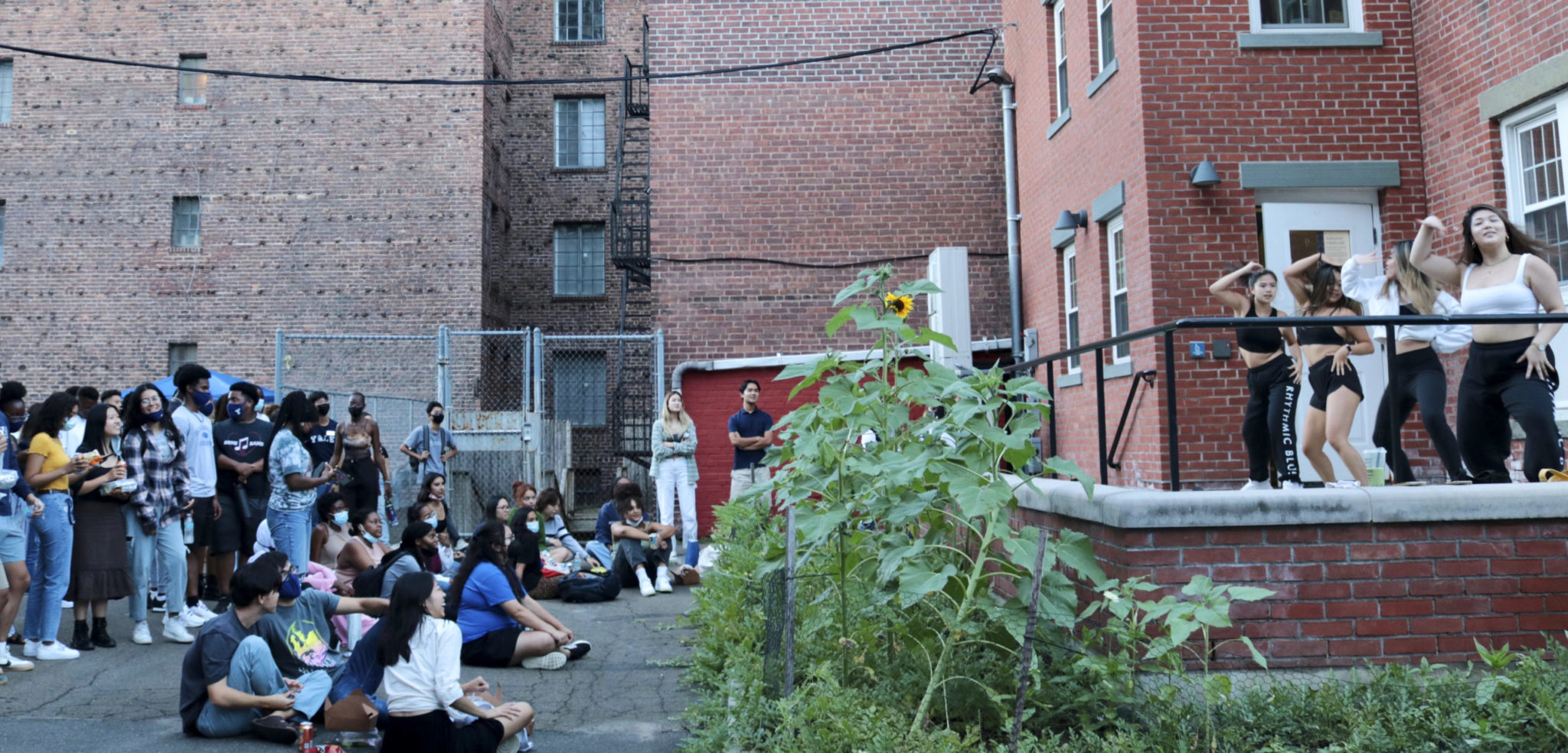Cultural centers on campus reopen their doors
Cultural center peer liaisons, student staff and deans discuss reopenings and transitioning from remote to in-person events.

Sophie Sonnenfeld, Contributing Reporter
Belle Thomas ’23 stepped into the Afro-American Cultural Center on Aug. 29 for the first time in a year and a half.
After 18 months, all of the cultural centers around campus have reopened their doors for peer liaison meetings, mixers and programs — with restrictions on eating, performances and capacity. Depending on those capacity limits, the centers offer students the ability to book spaces for events or meetings.
“I definitely will be spending more time there this year than I ever have before and have more of an opportunity to explore different rooms which is going to be a lot of fun,” Thomas said.
Six students and staff from Yale’s cultural centers expressed optimism and excitement about hosting more in-person and hybrid events in cultural center spaces this academic year, noting that safety remains a priority at each center.
Thomas, who is working as an Af-Am House peer liaison this year, was stationed in the library at the center for a “meet your PL” event. She said she was able to meet with roughly half of her 16 Stiles first-year advisees so they could ask her questions, complete get-to-know-you activities and grab to-go snacks.
Each room in the Af-Am House has a specific capacity limit but Thomas said the peer liaisons are trying to plan at least one event a month for first-year students to utilize space in the center. In the past, Thomas said they have hosted movie nights, skin and hair care routine discussion nights and meetings with graduate students.
Thomas said she was also looking forward to the first in-person meeting for peer liaisons on Wednesday.
“It’s going to be an entirely different dynamic being able to actually hang out with everybody on a weekly basis in-person because I feel like relationships will actually be able to form,” Thomas said.
Hema Patel ’23, Native American Cultural Center staff member and vice president of the Association of Native Americans at Yale, told the News that ANAAY held their first meeting in person last Wednesday. ANAAY is one of three active undergraduate native groups on campus. However, because their group was larger than the room capacity available at the NACC, they had to split into separate groups on the first and third floors of the building.
While the NACC was closed this past year, the center did offer some need-based visits for two or three people in the building at a time to use traditional medicine. Once Yale students began receiving COVID-19 vaccinations last spring, the center allowed sign ups for one or two people at a time to use specific rooms.
“I miss that feeling of people in every room, the kitchen busting with music and food, the library with people reading and studying,” Patel said. “It’s like a piece of home. A lot of people came from the same places I did or came from very different places but share the same values. It’s a great place of comfort and safety.”
To comply with COVID-19 restrictions, the kitchen remains closed, but Evan Roberts ’23, ANAAY president and NACC peer liaison, is looking forward to it reopening as “the heart” of the center.
Director of the NACC Matthew Makomenaw said the center has always encouraged students to book spaces for large events. Now, students should try to reserve spaces for informal large group meetings as well.
“We’re definitely focusing on reestablishing some of the new things that we learned that were great and some of the older things that were done traditionally,” Makomenaw said.
La Casa, the Latino Cultural Center at Yale, has held four in-person outdoor events including a meet the PLs event, a Bluebooking Party held on cross-campus, an Open House and an all-staff retreat. The center offered tours for small groups of students to check out the center during the Meet the PLs and Open House events.
Director of La Casa Eileen Galvez said in an email to the News that the center has a reservation system in-place for students to claim spaces inside but is still working with Yale Environmental Health and Safety to determine which of La Casa’s rooms can be used for reservations.
To allow students access without a reservation during open hours, the center is also considering a hybrid system to keep track of live occupancy. Additionally, Galvez said the center has purchased walkie-talkies, tents and outdoor projectors to allow for in-person events while maintaining COVID-19 restrictions.
“I believe we can achieve hybrid offerings for much of the fall, however, we may have challenges once winter sets as we will no longer be able to keep our windows open and keep our indoor spaces ventilated through that medium,” Galvez said.
Galvez also said she wants the center to continue to use lessons learned from the pandemic on accessibility as La Casa transitions to more in-person events this year.
“If last year taught us anything, it is that we have the capacity to expand the false borders from our community beyond the university gates and even our beloved city of New Haven,” she said.
Joliana Yee, director of the AACC, told the News that she hopes students will be able to utilize the center’s resources, especially as the center enters its 40th anniversary.
“I hope to see students utilize the space for being in community, both informally and formally because that is not only foundational to the Center’s mission but also an important source of healing as we continue to experience racialized violence and navigate pandemic related anxieties,” Yee wrote in an email to the News.
Yale’s first cultural center, the Afro-American Cultural Center, was founded in 1969.







